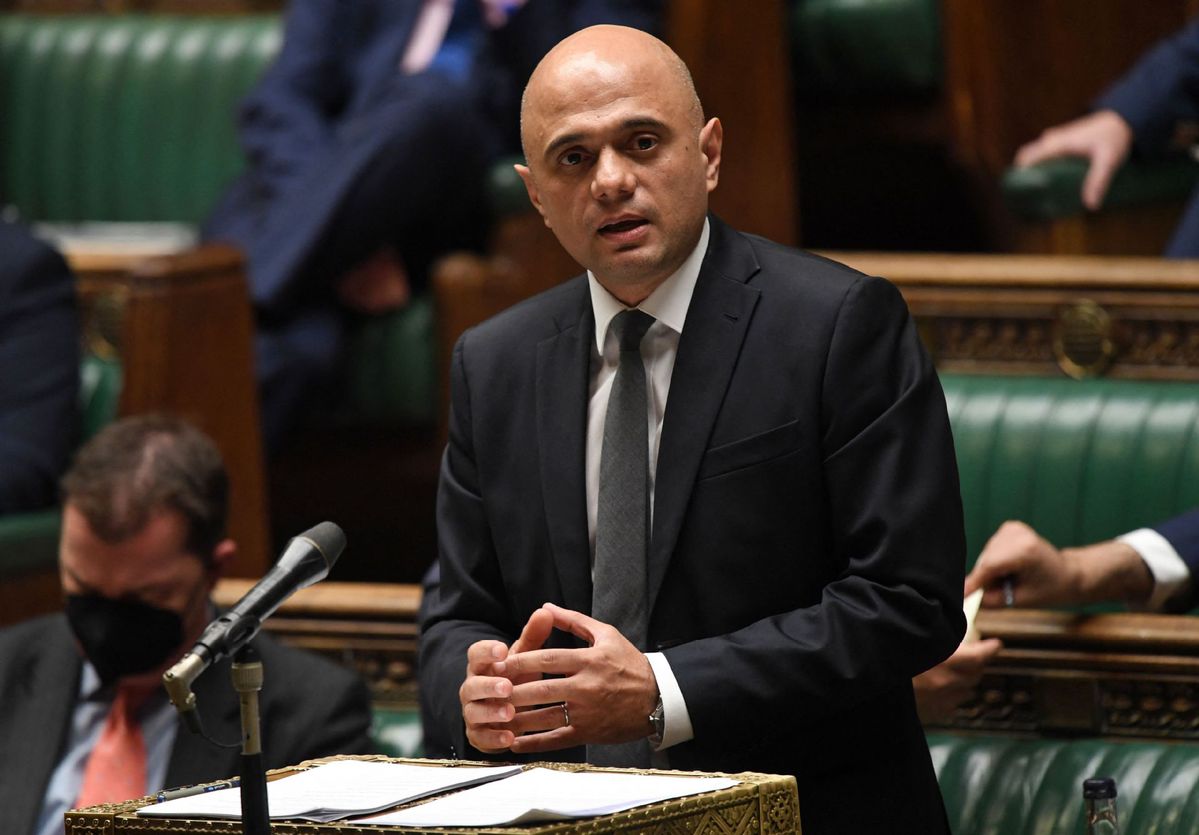Javid refuses to rule out tougher measures in UK


Britain's health secretary, Sajid Javid, has refused to rule out the introduction of tighter restrictions before Christmas to try and limit the spread of the Omicron variant of the novel coronavirus, but told the BBC that any such measures would not be "a lockdown at all by any means".
Across London, the new variant is responsible for 80 percent of new infections, and across the whole of England the figure is 60 percent.
Several other countries in Europe have already reintroduced lockdown or tightened measures, and speaking on the BBC's The Andrew Marr Show, Javid said it was "a very difficult, challenging time".
When pressed on the likelihood of further measures being introduced, possibly within the next week, he said "there are no guarantees in this pandemic ... At this point, we just have to keep everything under review".
Documents released on Saturday by the Scientific Advisory Group for Emergencies, also known as SAGE, showed that its members warned the government on Thursday that without tighter restrictions, hospitalizations could soon reach in excess of 3,000 per day.
"If the aim is to reduce the levels of infection in the population and prevent hospitalizations reaching these levels, more stringent measures would need to be implemented very soon," the documents said.
Delaying any intervention until the new year would "greatly reduce the effectiveness of such interventions and make it is less likely that these would prevent considerable pressure on health and care settings".
SAGE member Stephen Reicher, a professor of social psychology at the University of St Andrews, told Times Radio a so-called circuit breaker to limit social contact would be the most effective course of action.
"Now, you could have it after Christmas, the problem is after Christmas it's probably too late, it's probably by then we will have had a huge surge of infections with all the impact upon society," he added.
When asked by Marr about the SAGE comments, Javid called it a "sobering analysis" and said "we take it very seriously" but added "I don't think it would be appropriate for government to take it verbatim".
The World Health Organization said that as of Thursday, the Omicron variant had been identified in 89 countries, and although data on its strength was still limited, the speed with which it spread meant "it is possible that many healthcare systems may become quickly overwhelmed".
The Netherlands returned to a nationwide lockdown on Sunday, something caretaker prime minister Mark Rutte called "unavoidable" and "disappointing but perhaps not a very big surprise".
Since Nov 28, public meeting places such as bars, restaurants, and theaters have had to shut their doors at 5 pm, and that will now continue through the usually lucrative Christmas period.
Ireland has issued an 8 pm curfew on pubs and restaurants, with capacity limits on all indoor events, measures that will last until at least Jan 30.
In France, New Year's Eve fireworks and concerts planned for the Champs-Elysees in Paris have been canceled, with Prime Minister Jean Castex asking the local authorities in other cities to consider canceling their public gatherings as well.
Germany has become the latest European country to ban most travelers from Britain, as from Sunday.
Although German nationals and residents coming from the United Kingdom can still enter the country, they must have a negative test and quarantine for two weeks, regardless of their vaccine status.
Denmark, France, Norway, and Lebanon have joined the UK in being classified as high-risk countries by federal health agency the Robert-Koch-Institut.































